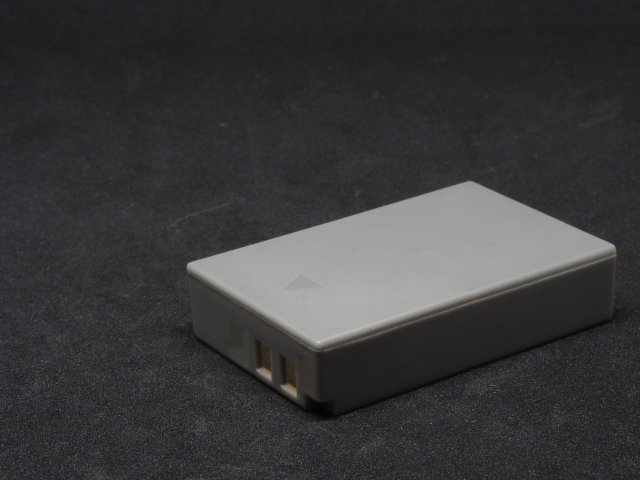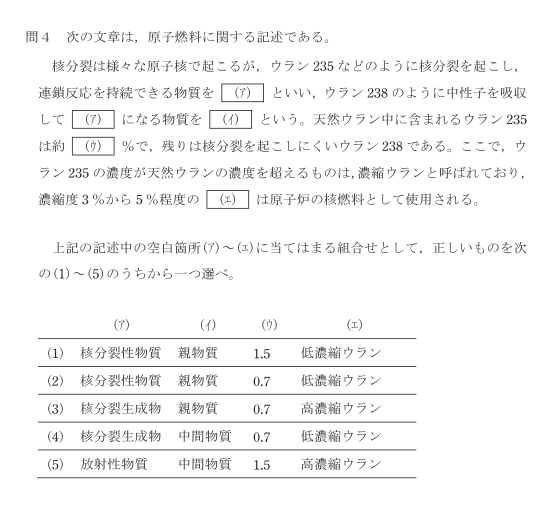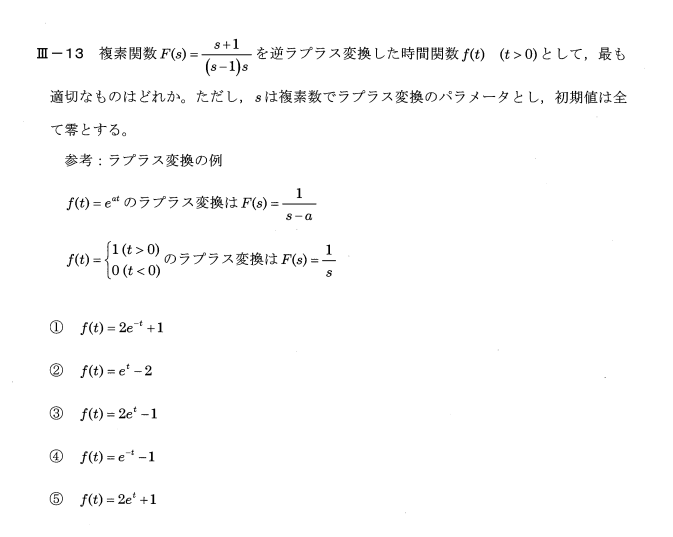Toyota scrambling behind the scenes to reboot EV strategy
Toyota is now considering a dramatic shift in its electric-car strategy to better compete in the booming EV market. The automaker is reviewing plans for improvements to its existing EV platform or for a new architecture, and has suspended work on some of the 30 EV projects announced in December. Toyota is also looking to adopt new technologies to reduce costs and make more efficient manufacturing processes to compete with Tesla.トヨタは現在、急成長するEV市場でより良い競争をするために、電気自動車戦略の劇的な転換を検討している。トヨタは、既存のEVプラットフォームの改良または新アーキテクチャーの計画を検討しており、12月に発表した30のEVプロジェクトのうちのいくつかは作業を中断しています。トヨタはまた、テスラに対抗するため、コスト削減やより効率的な製造工程を実現するための新技術の採用も検討している。
【全文】
The automaker reportedly realizes it's fallen behind rivals and, importantly, Tesla
Toyota is considering a reboot of its electric-car strategy to better compete in a booming market it has been slow to enter, and has halted some work on existing EV projects, four people with knowledge of the still-developing plans said.
The proposals under review, if adopted, would amount to a dramatic shift for Toyota and rewrite the $38-billion EV rollout plan the Japanese automaker announced last year to better compete with the likes of Tesla.
A working group within Toyota has been charged with outlining plans by early next year for improvements to its existing EV platform or for a new architecture, the four individuals said.
In the meantime, Toyota has suspended work on some of the 30 EV projects announced in December, which according to the sources and a document reviewed by Reuters include the Toyota Compact Cruiser crossover and the battery-electric Crown.
Toyota said it was committed to carbon neutrality but declined to comment on specific initiatives.
"In order to achieve carbon neutrality, Toyota's own technology — as well as the work we are doing with a range of partners and suppliers — is essential," the company said in response to questions from Reuters.
The four sources declined to be identified because the plans have not been made public.
The revamp under consideration could slow the rollout of EVs already on the drawing board. But it would also give Toyota a chance to compete with a more efficient manufacturing process, as industry-wide EV sales run past Toyota's earlier projections.
In addition, it would address criticism by green investors and environmental groups who argue that Toyota, once a darling of environmentalists, has been too slow to embrace EVs.
As part of the review, Toyota is considering a successor to its EV-underpinning technology called e-TNGA, unveiled in 2019. That would allow Toyota to bring down costs, the people said.
The first EV based on e-TNGA — the bZ4X crossover — hit the market earlier this year although its launch was marred by a recall that forced Toyota to suspend production from June. Production resumed earlier this month.
TESLA AS BENCHMARK
The review was triggered in part by the realization by some Toyota engineers and executives that Toyota was losing the factory cost war to Tesla on EVs, the sources said.
Toyota's planning had assumed demand for EVs would not take off for several decades, the four people said.
Toyota designed e-TNGA so that EVs could be produced on the same assembly line with gasoline cars and hybrids. That made sense based on the assumption Toyota would need to sell about 3.5 million EVs a year – roughly one-third of its current global volume – by 2030 to stay competitive, the sources said.
But sales of EVs are growing faster. Automakers globally now forecast plans for EVs to represent more than half of total vehicle production by 2030, part of a wave of industry-wide investment that now totals $1.2 trillion.
The person leading Toyota's EV review is Shigeki Terashi, former chief competitive officer, according to six people with knowledge of the work, including two people close to Toyota. Terashi did not respond to a request for comment.
Terashi's team has been designated a "BR" or "business revolution" group within Toyota, a term used for major changes including a revamp of its development and production processes two decades ago.
"What's driving Mr Terashi's effort is the EV's faster-than-anticipated takeoff and rapid-fire adoptions of cutting-edge innovations by Tesla and others," one of the people said.
All six people declined to be named because of the confidential nature of the plans.
Terashi's team is considering an option to prolong e-TNGA's usefulness by coupling it with new technologies, three of the sources said.
Terashi could also propose to retire e-TNGA more quickly and opt for an EV-dedicated platform engineered from the ground up. That could take roughly five years for new models, two of the sources said. "There is little time to waste," said one.
Toyota is working with suppliers and considering factory innovations to bring down costs like Tesla's Giga Press, a massive casting machine that has streamlined work in Tesla plants.
One area under review is a more comprehensive approach to an EV's thermal management — combining, for example, passenger air conditioning and electric powertrain temperature control — that Tesla has already mobilized, the sources said.
This could allow Toyota to reduce the size and weight of an EV battery pack and cut costs by thousands of dollars per vehicle, making it a "top priority" for Toyota suppliers Denso and Aisin, one of the sources familiar with the matter said. Denso and Aisin had no immediate comment.
The recognition within Toyota, the world's biggest automaker, that Tesla has set a new benchmark for EV manufacturing costs marks a major reversal.
A decade ago when Toyota took a stake in Tesla and the two collaborated to produce a battery-electric version of the RAV4, many Toyota engineers believed Tesla's technology was no threat, two of the sources said.
"They concluded back then there wasn't much to learn," one of the sources said.
Toyota discontinued the electric RAV4 in 2014 and sold its stake in Tesla in 2017.
By 2018, when Toyota finally set up a dedicated zero-emissions division and began building an e-platform, Tesla already had three models on the road.
【日本語訳】
ライバルやテスラの後塵を拝していることを自覚しているという。
トヨタ自動車は、これまで参入が遅れていた活況の市場でより良い競争をするために、電気自動車戦略の再起動を検討しており、既存のEVプロジェクトの一部を停止していると、まだ開発中の計画を知る4人の関係者が語った。
現在検討されている提案が採用されれば、トヨタにとって劇的な転換となり、テスラなどに対抗するために日本の自動車メーカーが昨年発表した380億ドルのEV展開計画が書き換えられることになる。
トヨタのワーキンググループは、既存のEVプラットフォームの改善または新しいアーキテクチャの計画を来年初頭までにまとめることを任されていると、4人は述べています。
一方、トヨタは12月に発表された30のEVプロジェクトのうちのいくつかを中断している。情報筋とロイターが調べた文書によると、トヨタのコンパクトクルーザークロスオーバーとバッテリー電気自動車クラウンが含まれているという。
トヨタは、カーボンニュートラルに取り組んでいると述べたが、具体的な取り組みについてはコメントを避けた。
「カーボンニュートラルを達成するためには、トヨタ独自の技術、そしてさまざまなパートナーやサプライヤーとの協力が不可欠だ」と、同社はロイターの質問に答えた。
4人の関係者は、計画が公表されていないため、特定を避けた。
現在検討されている改良は、すでに図面上にあるEVの展開を遅らせる可能性がある。しかし、業界全体のEV販売がトヨタの初期の予測を上回っているため、より効率的な製造プロセスで競争する機会をトヨタに与えることにもなる。
さらに、かつて環境保護主義者の寵児であったトヨタがEVの導入に遅すぎたという、グリーン投資家や環境保護団体からの批判にも対処することができるだろう。
見直しの一環として、トヨタは2019年に発表する「e-TNGA」と呼ばれるEVの下支え技術の後継を検討している。そうすれば、トヨタはコストを引き下げることができると、関係者は述べている。
e-TNGAをベースにした最初のEV、bZ4Xクロスオーバーは今年初めに市場に投入されたが、その発売はトヨタが6月から生産停止に追い込まれたリコールに見舞われた。今月初めには生産が再開されています。
ベンチマークとしてのテスラ
この見直しは、トヨタのエンジニアや幹部が、トヨタはEVでテスラとの工場コスト競争に負けていると気づいたことが引き金になったと、関係者は述べている。
トヨタの計画では、EVの需要が数十年先まで離陸しないことを想定していたと、4人は述べている。
トヨタは、EVをガソリン車やハイブリッド車と同じ組み立てラインで生産できるように、e-TNGAを設計した。トヨタが競争力を維持するためには、2030年までに現在の世界販売台数の約3分の1にあたる年間約350万台のEVを販売する必要があるという前提に立てば、それは理にかなっていると、関係者は述べた。
しかし、EVの販売台数はさらに伸びている。世界の自動車メーカーは、2030年までに自動車生産台数の半分以上をEVにする計画を立てており、これは現在総額1兆2000億ドルに上る業界全体の投資の波の一部である。
トヨタに近い2人を含む6人の関係者によると、トヨタのEVレビューを主導しているのは、元最高競争責任者の寺師茂樹氏であるという。寺師氏はコメントの要請には応じなかった。
寺師氏のチームは、トヨタ社内で「BR」または「ビジネス革命」グループに指定されている。これは、20年前に開発・生産プロセスの見直しを含む大きな変革に使われる言葉である。
「寺師氏の取り組みを後押ししているのは、予想以上に早いEVの離陸と、テスラなどによる最先端のイノベーションの急速な採用だ」と、関係者の1人は語った。
6人全員が、計画の機密保持のため、名前を明かすことを拒否した。
寺師氏のチームは、e-TNGAを新しい技術と組み合わせることで、その寿命を延ばすという選択肢を考えていると、関係者のうち3人は述べた。
また、寺師はe-TNGAをもっと早く引退させ、一から設計したEV専用のプラットフォームを選択することを提案する可能性もある。その場合、新型車には5年程度かかると2人の関係者は言う。「無駄にする時間はほとんどない」と1人は言う。
トヨタはサプライヤーと協力し、テスラの工場で作業を効率化した巨大な鋳造機「ギガプレス」のように、コスト削減のための工場改革を検討している。
検討中の分野のひとつは、EVの熱管理に対するより包括的なアプローチで、例えば、乗客のエアコンと電気パワートレインの温度制御を組み合わせるなど、テスラがすでに動員しているものだと関係者は述べています。
これは、トヨタがEVのバッテリーパックのサイズと重量を減らし、1台あたり数千ドルのコスト削減を可能にする可能性があり、トヨタのサプライヤーであるデンソーとアイシンにとって「最優先事項」だと、この問題に詳しい関係者の1人が述べている。デンソーとアイシンは、直ちにコメントを出していない。
世界最大の自動車メーカーであるトヨタの内部で、テスラがEVの製造コストの新たな基準を打ち立てたという認識は、大逆転を意味する。
10年前、トヨタがテスラに資本参加し、両社が共同でバッテリー駆動のRAV4を製造したとき、トヨタのエンジニアの多くはテスラの技術は脅威ではないと信じていたと、情報筋の2人は語った。
「彼らは当時、学ぶべきことはあまりないと結論付けていました」と、情報筋の1人は述べています。
トヨタは2014年に電動RAV4を廃止し、2017年にテスラへの出資を売却した。
トヨタがようやくゼロ・エミッションの専門部門を立ち上げ、eプラットフォームの構築を開始した2018年までに、テスラはすでに3つのモデルを発売していた。
CyatGPTにEVついて聞いてみた
Q:トヨタのEV戦略は成功すると思いますか?
トヨタはEV(電気自動車)の開発や販売に取り組んでおり、その戦略は成功していると言えます。
トヨタは、EVをはじめとする清掃燃料車両(FCV)、プラグインハイブリッド車(PHV)、ハイブリッド車(HV)の開発や販売に力を入れており、様々な種類のクリーンエネルギー車両を提供しています。また、トヨタはEVをはじめとするクリーンエネルギー車両を製造するための工場やインフラの整備も進めています。
さらに、トヨタは国内外でのEVの充電インフラの整備や、EVを採用する企業や地域へのサポートを行っています。これらの取り組みを通じて、トヨタはEVの普及を促進しています。
ただし、EV市場は持続的な成長を見せており、トヨタも他の自動車メーカーと同様に、市場の需要に応えるために、常に最新の技術や製品を開発し、提供する必要があります。そのため、トヨタは将来もEVの技術開発や事業展開を継続していくことが期待されます。
Q:TESLAと比べてトヨタはEV市場で優位性はありますか?
EV市場は持続的な成長を見せており、多くの自動車メーカーがEVをはじめとするクリーンエネルギー車両の開発や販売に取り組んでいます。そのため、トヨタとテスラのような自動軫メーカー間では、競争が激しく、それぞれが特徴的な製品を提供しています。
トヨタはEVをはじめとするクリーンエネルギー車両の開発に長年の取り組みを重ねており、EVをはじめとする様々なクリーンエネルギー車両を提供しています。また、トヨタはEVをはじめとするクリーンエネルギー車両を製造するための工場やインフラの整備も進めています。さらに、トヨタは国内外でのEVの充電インフラの整備や、EVを採用する企業や地域へのサポートを行っています。これらの取り組みを通じて、トヨタはEVの普及を促進しています。
一方で、テスラはEVを中心とする電気自動車の製造を専門とする企業であり、EV技術や設計においても非常に優れていると評価されています。また、テスラはEVをはじめとするクリーンエネルギー車両の販売だけでなく、EVの充電インフラの整備やサービスを提供するなど、EVエコシステム全体をカバーするビジネスモデルを採用しています。
トヨタとテスラのような自動車メーカー間では、それぞれが特徴的な製品やビジネスモデルを持っているため、どちらが優位であるかは比較することができません





